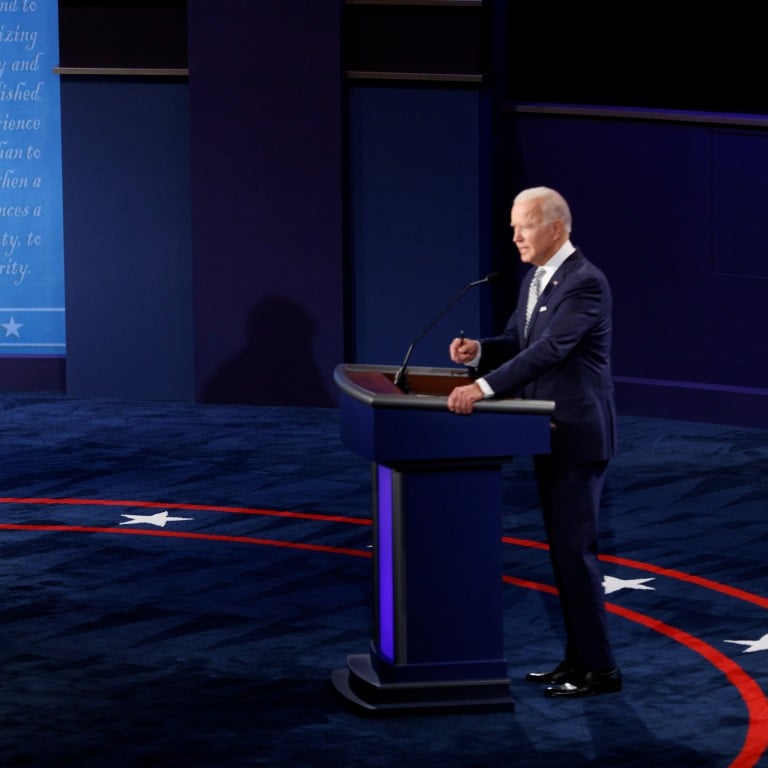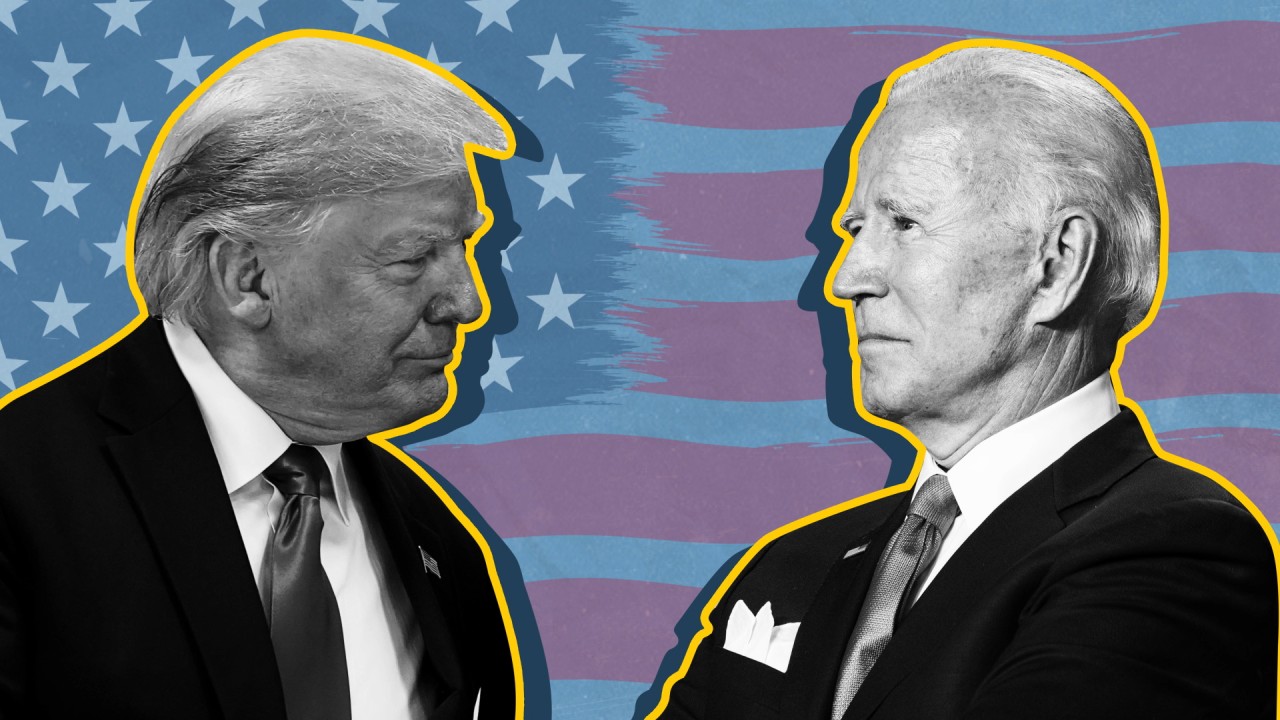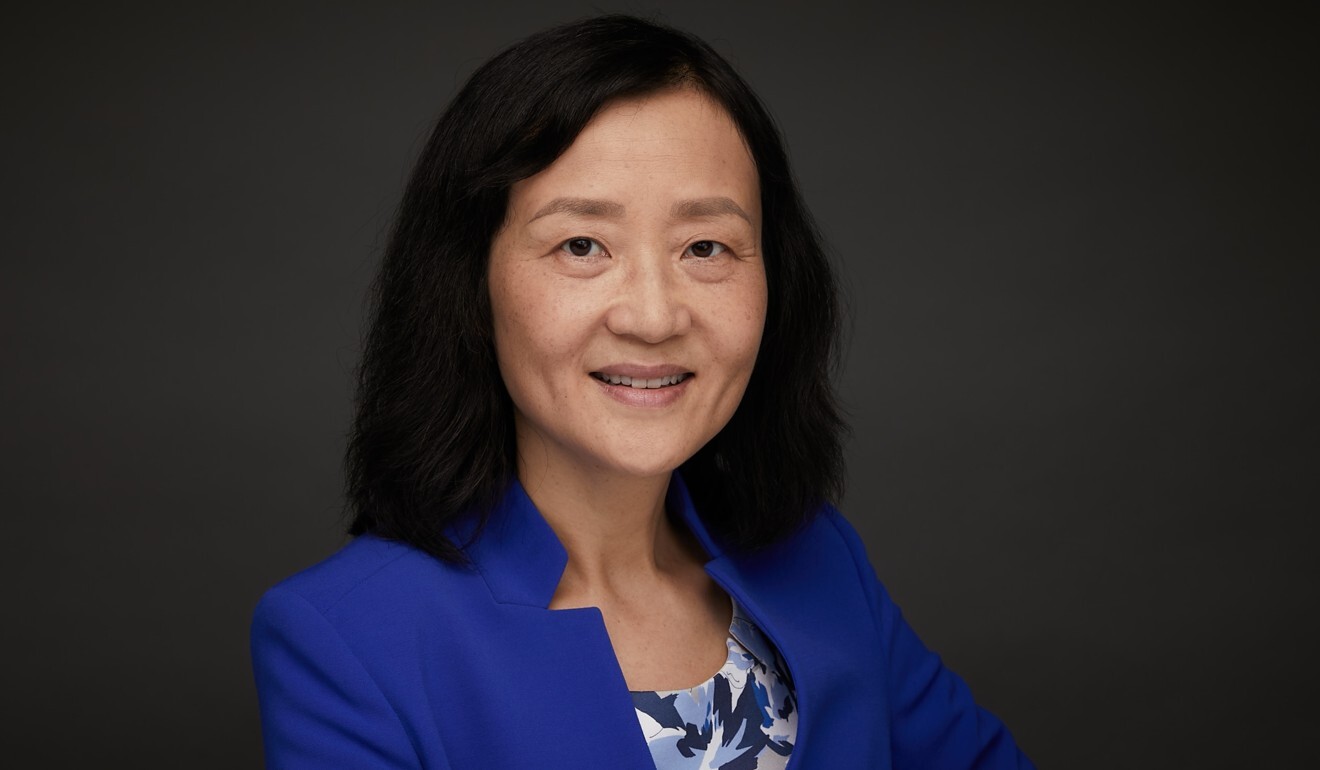
Presidential debate: Donald Trump blames ‘China plague’ for US economic woes
- Among the six topics for discussion, as chosen by the debate organisers, were Covid-19, the US economy and ‘the Trump and Biden records’
- Few American voters say they are undecided, and in many states voting has already started
Early on in the debate, Biden, the former vice-president, said that Trump had downplayed the severity of the pandemic and given undue praise to China’s response under President Xi Jinping’s government.
“We were insisting that … the people we had on the ground in China should be able to go to Wuhan [where the first infections were reported] and determine for themselves how dangerous this was,” Biden said.
“[Trump] did not ask Xi to do that. He told us what a great job Xi was doing, he said we owe him a debt of gratitude for being so transparent with us.”
Biden’s son Hunter has been the focus of accusations of corruption from Trump and his allies, who have said that his position as a board member of BHR (Shanghai) Equity Investment Fund Management was a result of Biden Sr’s influence.
The Biden campaign has disputed the accusations, no charges have been filed against either Biden in relation to the position, and no wrongdoing has been proved.
Trump accuses India of concealing coronavirus death toll
Along with Covid-19, the subjects for discussion were the candidates’ respective political records, the Supreme Court, the economy, race and violence in cities, and the integrity of the election.
Trump’s references to “the China virus” had become more frequent in his speeches and press conferences in recent months, as criticism about his administration’s response to the pandemic dragged his poll numbers down.
The most recent New York Times/Siena College poll, from September 22 to 24, showed Biden ahead 49 per cent to 41 per cent among likely voters.

11:15
Trump vs Biden: The 2020 US presidential election
The pandemic also reversed a decade-long decline in the US unemployment rate, which had reached record lows before entire sectors of the economy were devastated by closures needed to slow the virus’ spread.
Trump was something of a front-runner in framing America’s economic relationship with China as one of the country’s biggest problems during his 2016 campaign, an issue that helped usher him into the White House, and he has continued this messaging throughout his tenure.
The matters of trade policy and manufacturing were a long time in the making, which means they will not be resolved any time soon. While automation accounts for a portion of US job losses, data shows that Beijing’s economic planning has also played a significant role.
Trump mayhem takes over first debate
By sifting through and correlating 15 years of corporate data in the US and China, researchers at Columbia’s Graduate School of Business and Boston College’s Carroll School of Management concluded in a paper published this year that Chinese firms displaced US counterparts “not just in ‘sunset’ industries from which the US was happy to retreat, but also in industries that both countries are eager to lead”.
The researchers also found that much of China’s success in outmanoeuvring US companies derived from Beijing’s five-year industrial plans, which came with subsidies for its targeted industries, particularly telecommunications and alternative energy products.
The number of Chinese companies in these industries rose by an average of 30 per cent after they were identified by Beijing’s government planners, whereas the number of comparable US firms declined by about 7 per cent in the same time frame, according to the research.
“The policies reflect what many voters, what many, many people in our population, want,” said Wei Jiang, a senior scholar at Columbia University’s Chazen Institute for Global Business and one of the study’s three authors.
TikTok launches in-app guide to US 2020 elections
Biden has presented an economic strategy to “rebuild domestic manufacturing capacity”, which is meant to support American suppliers in semiconductors, pharmaceuticals and other industries emphasised by the Chinese government in its five-year plans.
In his campaign messaging, Biden has accused Trump of pursuing “a trade strategy that prioritises access for big multinational banks to China’s market but has done next to nothing to curb Chinese government trade abuses that hurt US workers”.
And the former vice-president has more ammunition against Trump given the limited results that the trade war have yielded.

Ahead of Tuesday’s debate, Robert Daly of the Wilson Centre said that the candidates would offer radically different characterisations of the trade war, warning that that “there’s no way to have a constructive debate on this complex issue amidst infantile theatrics”.
“President Trump will say that his phase one trade deal was one of the greatest deals of all time,” said Daly, who is director of the centre’s Kissinger Institute on China and the United States.
“Biden will point out that the American trade deficit with China is now higher than it’s been since 2008 and that Americans themselves paid the cost of the White House’s tariffs and its subsidies for American farmers.”
What is the US-China trade war?
Still, no matter who is deemed the winner on how to deal with China, or on any other subjects, the three debates might not matter.
“Unlike the primary campaigns, where the intramural arguments on stage introduce new candidates to the voting public, the presidential debates appear more often to confirm existing preferences,” said Thomas McLoughlin, managing director at UBS Financial Services.
“And there are fewer undecided voters available today with voting already under way,” he added, citing a recent poll by The Wall Street Journal and NBC News showing that 90 per cent of voters have already made up their minds.
Additional reporting by Jodi Xu Klein and Owen Churchill

